- Vision & Mission of the Department
- PEOs and PSOs of the Department
- About Civil Engg Department
- Course Structure
- Faculty
- Syllabus
- Laboratories
- Activities of the Dept.
VISION AND MISSION OF CIVIL ENGINEERING DEPARTMENT
VISION
To be a centre of excellence by providing education consistent with overall progress in Civil Engineering for the upliftment of the society.
MISSION
- To prepare students to supervise and work as a team in multi-disciplinary projects.
- To impart updated knowledge about the modern approach in construction methodology.
- To instill ethical values in Civil Engineering practice and its socio-cultural impact encompassing public utilities and services.
- To establish himself/herself as a proud citizen of the society in addition to technical competence.
PROGRAM EDUCATIONAL OBJECTIVES (PEOS)
PEO 1 : To apply the knowledge of Civil Engineering to solve problems of social & environmental relevance and for pursuing higher education.
PEO 2 : To prepare for successful careers in industry or to become entrepreneurs.
PEO 3 : To work effectively as individuals and as team members in multipurpose projects.
PROGRAM SPECIFIC OUTCOMES (PSOs)
- Apply technical knowledge and skills for supervising civil engineering constructions to meet the emerging needs of the society.
- Practice civil engineering activities with ethical and professional standards understanding its impact in societal and environmental context.
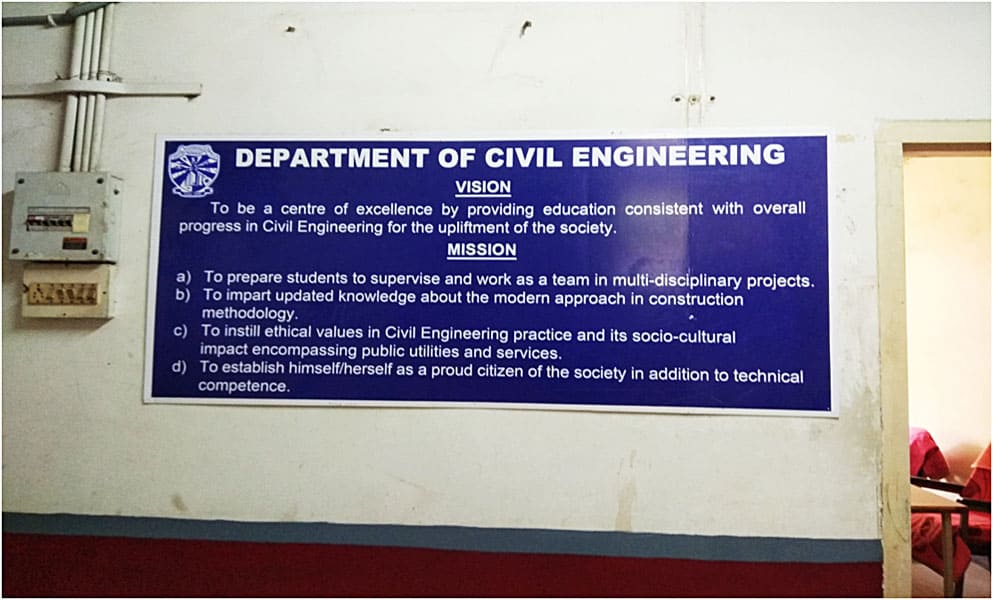 The Civil Engineering Department was the first Department to be started when the Institute was first established on 16th of January, 1948. The Institute was then named the Assam Civil Engineering School, which was again changed to Assam Civil Engineering Institute in 1952. The present name of the Institute was given in 1956. The need of the State of Assam at that time was that of an Institution to train Assistant Engineers and Overseers to execute the heavy programmes of the post Second World War Development Plan like construction of roads, bridges, and buildings.
The Civil Engineering Department was the first Department to be started when the Institute was first established on 16th of January, 1948. The Institute was then named the Assam Civil Engineering School, which was again changed to Assam Civil Engineering Institute in 1952. The present name of the Institute was given in 1956. The need of the State of Assam at that time was that of an Institution to train Assistant Engineers and Overseers to execute the heavy programmes of the post Second World War Development Plan like construction of roads, bridges, and buildings.
Student Intake:
The intake of the Department of Civil Engineering has varied over the years and was changed depending of the need of the times. Starting from the original intake of 30 students in the first batch of the Department, the intake has varied from 60 to 120 and the present intake of the Department stands at 90 students.
Staff:
The Department of Civil Engineering had only one Lecturer at the time of inception, and at present, the Department has one Head of Department, 10 (Ten) Lecturers,3(Three) Senior Instructorsand . Almost all the faculties are master’s degree holders in various Civil Engineering fields like Structural Engineering, Watershed Management & Flood Control Engineering, Building Construction, and Soil Mechanics and Foundation Engineering.
Our Programmes:
- Diploma in Civil Engineering
Facilities:
- Laboratories
- Library
- Computer Centre
Other Programmes:
- Sponsored training Programmes
- IRG through Consultancies
Programmes:
Diploma in Civil Engineering
The Civil Engineering Department of Assam Engineering Institute has been producing Diploma engineers for more than fifty years. The demand for Civil Engineers in the North-Eastern region is increasing as a lot of infrastructure development projects are coming up in the region in recent times. With a well-qualified staff and a lot of new equipment in the modernized laboratories, the students have benefited by getting proper technical exposure. Further, the Department has provided and will continue to provide its services to society in general and industry in particular by providing right information and appropriate technology. The strides taken by the Department in recent years promise more benefits to the students, to the Institute, and to the State of Assam.
Library:
 The library of the department is a house of many books related to Civil Engineering including reference books supplied by publishers. Our staffs as well as students are acquiring knowledge through the books belongs to our department.
The library of the department is a house of many books related to Civil Engineering including reference books supplied by publishers. Our staffs as well as students are acquiring knowledge through the books belongs to our department.
Computer Center:
The Civil Engineering Department has a computer center of its own for carrying out the Drawing works in the field of Civil Engineering. It is maintained and administrated under the care and responsibility of the Head of the Department with the help of some faculty and staff members of the Department. The center is equipped with almost 30 numbers of computers and all of them are loaded with software related to Civil Engineering as well as antivirus software. This CAD center is accessible to the teachersand regular students of the department.

Other Programmes:
Besides the regular Diploma Courses, the other activities of the Department can be classified under two heads:
- Sponsored training Programmes
- IRG through Consultancies
Sponsored Training Programmes:
The department has been actively organizing short term awareness and training programmes in fields like:
- Earthquake Disaster Mitigation
- Earthquake Resistant Construction
- Low-Cost Construction technology like Ferro-cement construction
- Low-Cost Housing
- Quality control in construction
These short-term training programmes have been sponsored by the Entrepreneurship and Management Development Programme (EMDP) of AICTE as well as Housing and Urban Development Corporation Ltd. (HUDCO).
Internal Revenue Generation (IRG) through Consultancies:
The Department has contributed a lot to the Internal Revenue Generation of the Institute by extending its Material Testing facilities to several State and Central Govt. Organizations and private construction companies. At present, the Department offers its services in the following fields:
- Material Testing
- Soil Testing
- Surveying
- Design of earthquake resistant buildings and structures
- Water Quality Testing
- Computer Aided drafting using AutoCAD
Courses Offeres: 3 year Diploma in Civil Engineering
CURRICULUM REVISION
With an objective to implement NEP 2020 in Higher Education and the State
Polytechnics, with effect from the academic session 2024-25 a framework is
designed for the transformation of the entire Technical Education (TE) in order to
respond to the requirements of fast-changing and knowledge-based Indian society.
Salient features that were considered for developing the curriculum aligned to
NEP 2020 are as follows:
▪ Reduced number of credits.
▪ Introduction of Student Induction Program.
▪ Well defined learning objectives & outcomes for each course.
▪ Inclusion of courses on socially relevant topics.
▪ Built-in flexibility to the students in terms of professional elective and open
Elective courses.
▪ Mandatory internship to equip the students with practical knowledge and
provide them exposure to real time industrial environments.
▪ Virtual Labs.
▪ Mapping of Courses to its equivalent NPTEL/SWAYAM Course.
▪ Course on ‘Entrepreneurship and Startups’ to encourage entrepreneurial
mindset.
▪ Introduction of Design Thinking and Universal Human Value course.
Structure of Diploma Program: The structure of Diploma program has the
following categories of courses with the breakup of credits as given:
Sl.No.
Category
Credit Breakup
1
Humanities and Social Sciences including Management
courses
9
2
Basic Science courses
23
3
Engineering Science courses including workshop,
drawing,
basics of electronics/electrical/mechanical/computer etc.
10
4
Professional core courses
47
5
Professional Elective courses relevant to chosen
specialization/branch
8
6
Open subjects – Electives from other technical and /or
emerging Subjects
9
7
Project work, seminar and internship in industry or
elsewhere
14
8
Mandatory Courses
[Environmental Sciences, Induction Program, Indian
Constitution, Essence of Indian Knowledge Tradition]
Non-Credit
Total
120
| Sl.No. | Category | Credit Breakup |
| 1 | Humanities and Social Sciences including Management courses | 9 |
| 2 | Basic Science courses | 23 |
| 3 | Engineering Science courses including workshop, drawing, basics of electronics/electrical/mechanical/computer etc. | 10 |
| 4 | Professional core courses | 47 |
| 5 | Professional Elective courses relevant to chosen specialization/branch | 8 |
| 6 | Open subjects – Electives from other technical and /or emerging Subjects | 9 |
| 7 | Project work, seminar and internship in industry or elsewhere | 14 |
| 8 | Mandatory Courses [Environmental Sciences, Induction Program, Indian Constitution, Essence of Indian Knowledge Tradition] | Non-Credit |
| Total | 120 |
Course structure:-
| Subject Code | Subject | Study Scheme (contact | Evaluation Scheme | Total Mark (Th+Pr) | Credit | |||||||||
| Theory | Practical | |||||||||||||
| L | T | P | ESE | Sessional (SS) | Pass (ESE+ SS) | PT | PA | Pass mark (PT | ||||||
| TA | HA | Total (TA+H A) | ||||||||||||
| Co- 301 | Computer Application& Programming | 3 | – | 3 | 70 | 10 | 20 | 30 | 33 | 25 | 25 | 17 | 150 | 4 |
| Hu- 302 | Engineering Economics& Accountancy | 3 | – | 70 | 10 | 20 | 30 | 33 | 100 | 3 | ||||
| El/E t- 304 | Fundamentals of Electrical & Electronic Engineering | 3 | – | 3 | 70 | 10 | 20 | 30 | 33 | 25 | 25 | 17 | 150 | 4 |
| CV- 301 | Water Resource Engineering | 4 | – | 70 | 10 | 20 | 30 | 33 | 100 | 4 | ||||
| CV- 302 | Building Construction & Materials | 3 | – | 3 | 70 | 10 | 20 | 30 | 33 | 25 | 25 | 17 | 150 | 4 |
| CV- 303 | Civil Engineering Drawing | 6 | 100 | 50 | 50 | 150 | 4 | |||||||
| CV- 310 | Professional Practice-I | 1 | 2 | 25 | 25 | 17 | 50 | 2 | ||||||
| Total | 17 | 17 | ||||||||||||
| 34 | Grand Total = | 850 | 25 | |||||||||||
| Subject Code | Subject | Study Scheme (contact | Evaluation Scheme | Total Mark (Th+Pr) | Credit | |||||||||
| Theory | Practical | |||||||||||||
| L | T | P | ESE | Sessional (SS) | Pass (ESE+ SS) | PT | PA | Pass mark (PT | ||||||
| TA | HA | Total (TA+H A) | ||||||||||||
| CV- 401 | Surveying | 3 | 3 | 70 | 10 | 20 | 30 | 33 | 25 | 25 | 17 | 150 | 4 | |
| CV- 402 | Structural Mechanics | 3 | 70 | 10 | 20 | 30 | 33 | 100 | 3 | |||||
| CV- 403 | Hydraulics | 3 | 3 | 70 | 10 | 20 | 30 | 33 | 25 | 25 | 17 | 150 | 4 | |
| CV- 404 | Estimating-I | 3 | 70 | 10 | 20 | 30 | 33 | 100 | 3 | |||||
| CV- 405 | Computer Aided Drafting& Drawing | 6 | 100 | 50 | 50 | 150 | 4 | |||||||
| CV- 406 | Concrete Technology | 3 | 3 | 70 | 10 | 20 | 30 | 33 | 25 | 25 | 17 | 150 | 5 | |
| CV- 410 | Professional Practice-II | 1 | 2 | 25 | 25 | 17 | 50 | 2 | ||||||
| Total | 16 | 17 | ||||||||||||
| 33 | Grand Total = | 850 | 25 | |||||||||||
| Subject Code | Subject | Study Scheme (contact | Evaluation Scheme | Total Mark (Th+Pr) | Credit | |||||||||
| Theory | Practical | |||||||||||||
| L | T | P | ESE | Sessional (SS) | Pass (ESE+ SS) | PT | PA | Pass mark (PT | ||||||
| TA | HA | Total (TA+H A) | ||||||||||||
| CV-501 | Advanced Surveying | 3 | – | 3 | 70 | 10 | 20 | 30 | 33 | 50 | 50 | 33 | 200 | 4 |
| CV-502 | Transportation Engg | 3 | – | 3 | 70 | 10 | 20 | 30 | 33 | 25 | 25 | 17 | 150 | 4 |
| CV-503 | Design of RCC Structure | 4 | – | 2 | 70 | 10 | 20 | 30 | 33 | 100 | 5 | |||
| CV-504 | Geotechnical & Foundation Engg | 3 | – | 3 | 70 | 10 | 20 | 30 | 33 | 25 | 25 | 17 | 150 | 4 |
| CV-505 | Advance Building Construction & Earthquake Resistant Technology | 3 | – | 70 | 10 | 20 | 30 | 33 | 100 | 3 | ||||
| CV-510 | Professional Practice-III | 1 | 2 | 50 | 2 | |||||||||
| OPTIONAL (ANYONE) | ||||||||||||||
| CV-506 | Green Building | 3 | 70 | 10 | 20 | 30 | 33 | 100 | 3 | |||||
| CV-507 | Architectural Practices and Interior Deign | 3 | 70 | 10 | 20 | 30 | 33 | 100 | 3 | |||||
| CV-508 | Construction Technique & Equipment | 3 | 70 | 10 | 20 | 30 | 33 | 100 | 3 | |||||
| Total | 20 | 13 | ||||||||||||
| 33 | Grand Total = | 850 | 25 | |||||||||||
| Subject Code | Subject | Study Scheme (contact | Evaluation Scheme | Total Mark (Th+Pr) | Credit | |||||||||
| Theory | Practical | |||||||||||||
| L | T | P | ESE | Sessional (SS) | Pass (ESE+ SS) | PT | PA | Pass mark (PT | ||||||
| TA | HA | Total (TA+H A) | ||||||||||||
| Hu- 601 | Industrial management &Entrepreneursh ip | 3 | 70 | 10 | 20 | 30 | 33 | 100 | 3 | |||||
| CV- 601 | Design of Steel Structure | 4 | 1 | 70 | 10 | 20 | 30 | 33 | 100 | 4 | ||||
| CV- 602 | Estimating-II | 3 | 70 | 10 | 20 | 30 | 33 | 100 | 3 | |||||
| CV- 603 | Environmental Engineering &Pollution Control | 3 | 1 | 3 | 70 | 10 | 20 | 30 | 33 | 25 | 25 | 17 | 150 | 4 |
| Cv-611 | Project & Seminar | 6 | 100 | 50 | 50 | 150 | 3 | |||||||
| Cv-612 | General Viva | 2 | 50 | 17 | 50 | 2 | ||||||||
| CV- 610 | Professional Practice-IV | 1 | 2 | 25 | 25 | 17 | 50 | 2 | ||||||
| OPTIONAL (ANYONE) | ||||||||||||||
| CV- 604 | BuildingRepair &Maintenance | 3 | 3 | 70 | 10 | 20 | 30 | 33 | 25 | 25 | 17 | 150 | 4 | |
| CV- 605 | Railway Bridge & Tunnel Engineering | 3 | 3 | 70 | 10 | 20 | 30 | 33 | 25 | 25 | 17 | 150 | 4 | |
| Total | 18 | 3 | 14 | |||||||||||
| 35 | Grand Total = | 850 | 25 | |||||||||||
Faculty and Staff
| Sl.No. | Name | Designation | Qualification | Publication | Training | Photo Identity |
| 1 | Mrs. Anita Saikia | Lecturer, Selection Grade | M.E. | “Effect of fly-ash on strength behavior of clayey soil” – International Research Journal of Engineering and Technology. Vol04 issue 07 e-ISSN:2395-0056, p – ISSN:2395-0072 – PP-2506 to 2508. | (i)“Preventing and handling workplace harassment and discrimination” – 3 day training . Course at Assam Administrative Staff College Khanapara. |
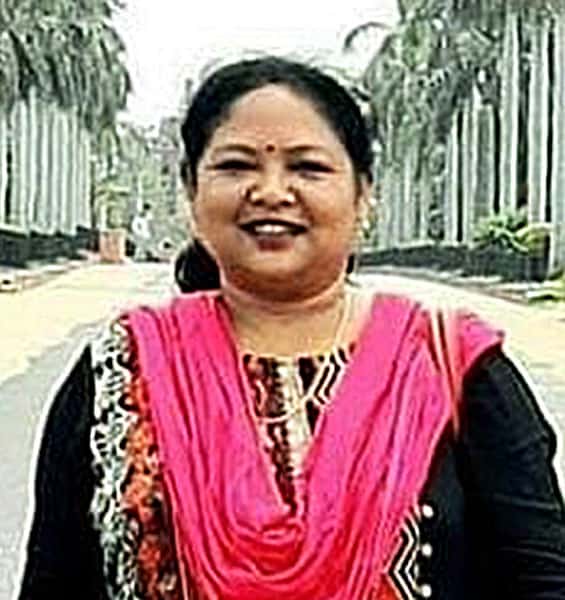 |
| 2 | Mr. Anjan Barman | Lecturer, Selection Grade (HoD i/c) | M.E. | Nil | 1. 3-days Training programme on Project Management sponsored by DoPT, Govt. of India from 4-6 October, 2021 |
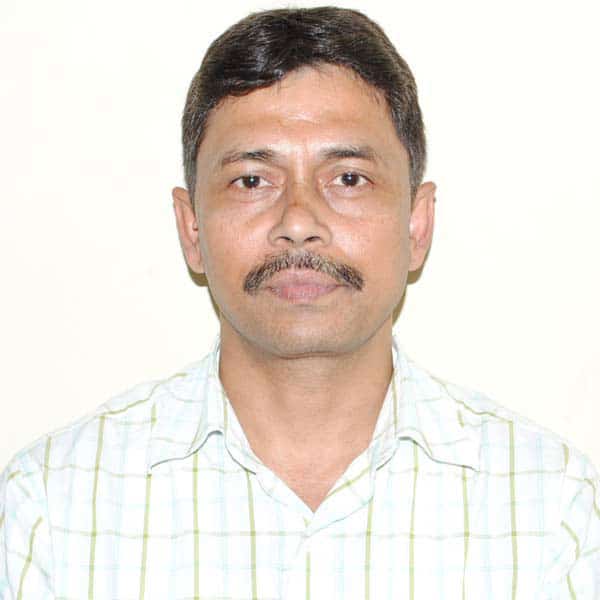 |
| 3 | Mr. Dilip Kumar Baishya | Lecturer, Selection Grade | M.E. | Nil | (I) Induction Training (2) Earthquake Resistant Structure. |
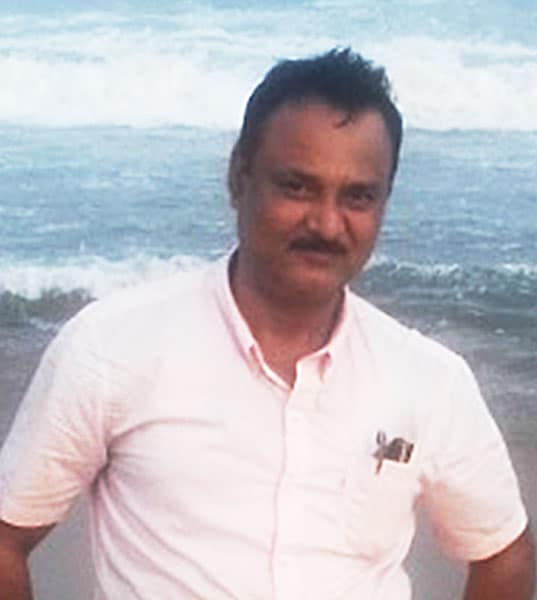 |
| 4 | Mr. Pradip Kumar Kalita | Lecturer, Selection Grade | M.Tech. | Nil | One Numbers (One Week) |
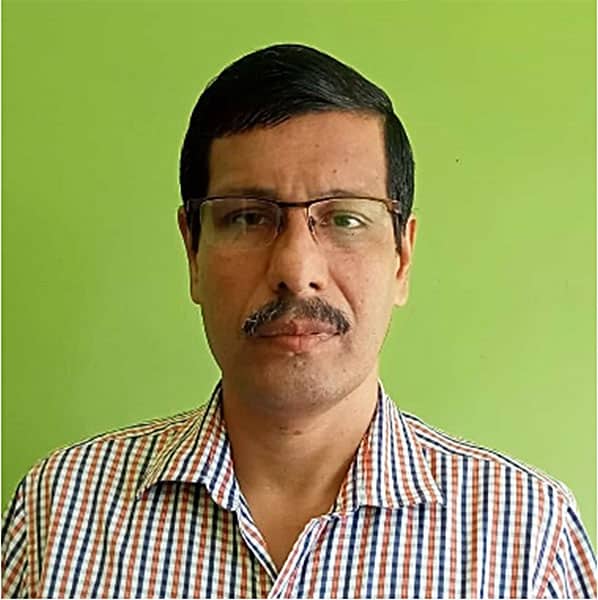 |
| 5 | Mr. Mokaddes Hussain | Lecturer, Selection Grade | M.E. | Nil | Two Numbers |
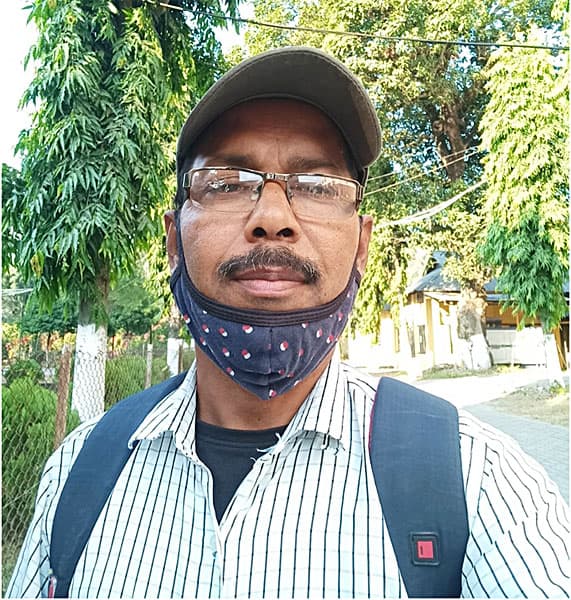 |
| 6 | Mrs. Barnali Roy Choudhury | Lecturer | M.E. | Nil | Domestic Water Purifier and Health (Last 3 Years) Strategic Management Environmental Pollution – An Overview Practical training at construction site of Nalbari Medical College at Dakshingaon. Recent Development in Civil Engineering. Disaster Management Mitigation and Responces,2020 Analysis and design of structures using latest version of a structural engineering software |
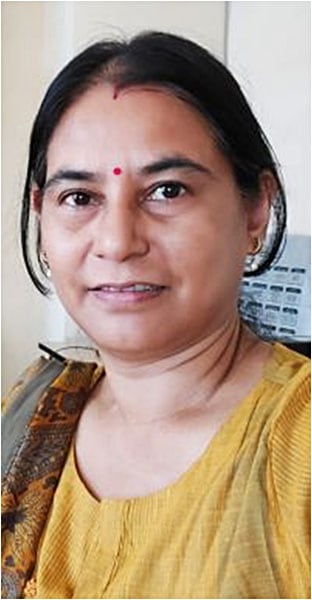 |
| 7 | Nabajyoti Deka | Lecturer | M.TECH |
 | ||
| 8 | Jyoti Taparia | Lecturer | M.Tech in Water Resources Engineering and Management |
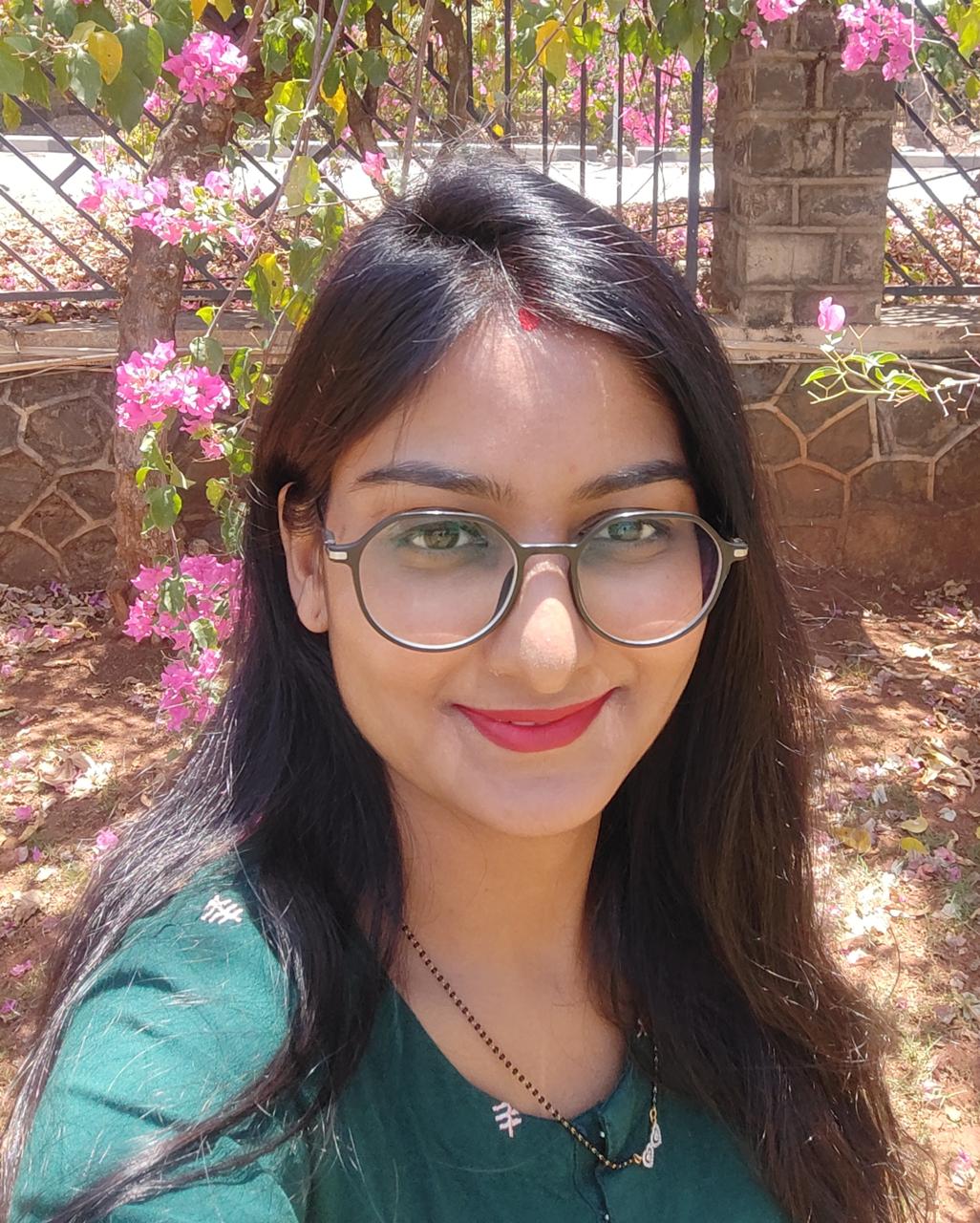 | ||
| 9 | Miss. Ajanta Das | Senior Instructor | Diploma in Civil Engineering | Nil | Nil |
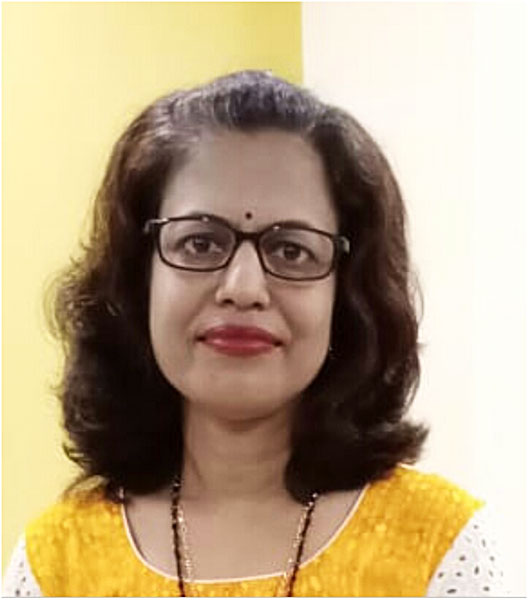 |
| 10 | Miss Pragati Talukdar | Senior Instructor | M.Tech |
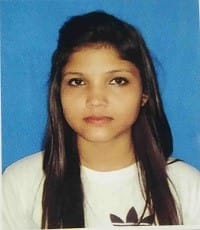 |
Civil Engineering Syllabus
| 1ST SEMESTER SYLLABUS(NEW) | View / Download |
| 2ND SEMESTER SYLLABUS(NEW) | View / Download |
| 1ST SEMESTER SYLLABUS(OLD) | view / download |
| 2ND SEMESTER SYLLABUS(OLD) | view / download |
| CIVIL ENGINEERING , 3rd to 6th SEMESTER | view / download |
Civil Engineering Department Laboratories
The laboratories of the Department have been upgraded with the installation of new equipment under the World Bank Project. At present, the Department has the following laboratories:
- Geotechnical Engineering Laboratory
- Transportation Engineering Laboratory
- Material Testing Laboratory
- Structural Engineering Laboratory
- Hydraulics Laboratory
- Environmental Engineering Laboratory
- Surveying Laboratory
Geotechnical Engineering Laboratory:
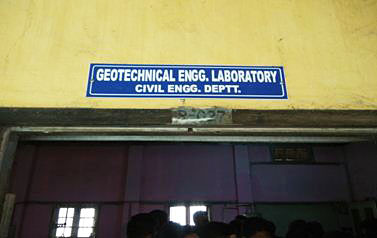
The laboratory has state of the art geotechnical engineering equipment and is one of the oldest laboratories of Assam Engineering Institute. It caters the needs of civil engineering diploma students as well as provides consultancy services to many reputed organizations of the entire Northeastern region. The laboratory has all the facilities for testing soil. It also has necessary laboratory equipment for performing various field tests in the field of geotechnical engineering. Some important instruments are mentioned here-
- CBR Test apparatus
- Direct Shear apparatus
- Casagrande apparatus and cone penetrometer
- Proctor test apparatus (heavy+light)
- Core cutter
- SPT apparatus
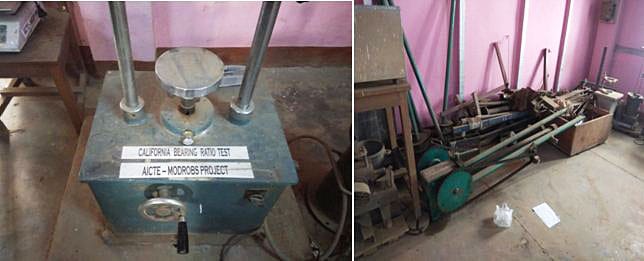
Transportation Engineering Laboratory:
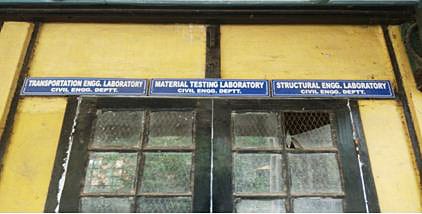
This laboratory is well equipped with state of the art equipment and facilities for conducting laboratory practice for the students and carrying out consultancy works. Some important instruments are mentioned here
- Aggregate Impact Value apparatus
- Crushing Value of Aggregates apparatus
- Los Angeles Abrasion apparatus
- Bitumen Penetration test apparatus

Material Testing Laboratory:

This lab is well equipped for the students as well as consultancy purposes. The instruments available in the laboratory are-
- Universal Testing Machine
- Compression Testing Machine
- Vicat Apparatus
- Vibrating table
- Sieve shaker
- Mortar mixing machine
- Humidity cabinet
- Core cutter

Structural Engineering Laboratory: This laboratory setting process is going on.

Hydraulics Laboratory:
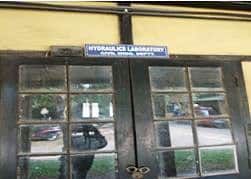
The Hydraulics Laboratory in the Civil Engineering Department of Assam Engineering Institute is equipped for the students as well as consultancy purposes. The instruments available in the laboratory are-
- Reynold’s apparatus
- Orifice-meter
- Jet impact apparatus
- Bernoulli’s apparatus
- Notches

Environmental Engineering Laboratory:

The laboratory is well equipped with the following apparatus used for the benefit to the students as well as consultancy works under the Environmental Engineering. The instruments available in the laboratory are-
- Digital PH Meter
- Jar Test Apparatus
- Nephelo Meter
- Digital Turbidity Meter
- BOD Incubator

Surveying Laboratory:

Surveying is required for planning, design and execution of any construction work. In the Surveying Laboratory the students are exposed to various basic and advanced equipment. The Surveying Laboratory houses sophisticated instruments like Total Station, Theodolite. The various other equipments available in the laboratory are.
- Prismatic Compass
- Metal Ranging Rod
- Leveling Staff
- Plane Table
- Total Station
- Theodolite
- Dumpy Level
- Auto Level

DEPARTMENTAL ACTIVITIES
Besides the regular Diploma Courses, the other activities of the Department can be classified under two heads:
- Sponsored training Programmes
- IRG through Consultancies
Sponsored training Programmes:
The Department has been actively organising short term awareness and training programmes in fields like:
- Earthquake Disaster Mitigation
- Earthquake Resistant Construction
- Low Cost Construction technology like Ferro-cement construction
- Low Cost Housing
- Quality control in construction
These short term training programmes have been sponsored by the Entrepreneurship and Management Development Programme (EMDP) of AICTE as well as Housing and Urban Development Corporation Ltd. (HUDCO).
Internal Revenue Generation (IRG) through Consultancies:
The Department has contributed a lot to the Internal Revenue Generation of the Institute by extending its Material Testing facilities to several State and Central Govt. Organizations and private construction companies. At present, the Department offers its services in the following fields:
- Material Testing
- Soil Testing
- Surveying
- Design of earthquake resistant buildings and structures
- Water Quality Testing
- Computer Aided drafting using AutoCAD.
Newsletters of Civil Engineering Department(Kaleidoscope)
Industrial Visit to Star Cement by 5th semester students on 15/12/2022.
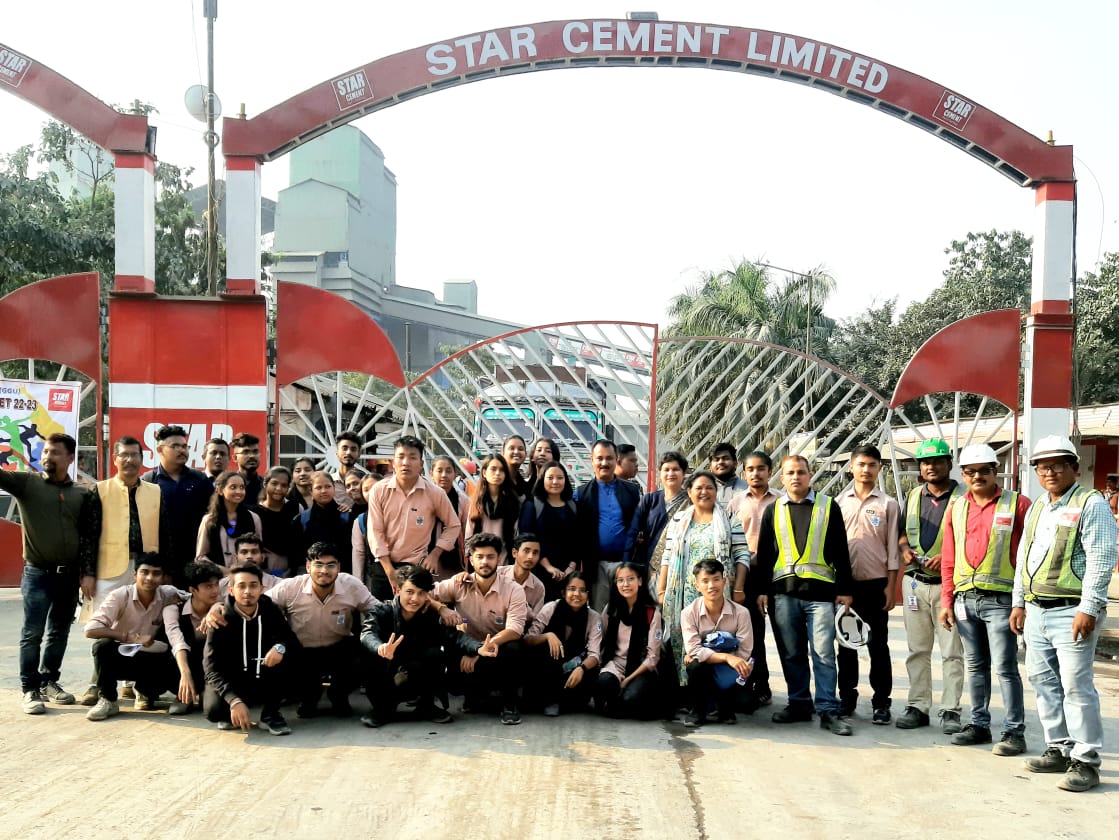 | 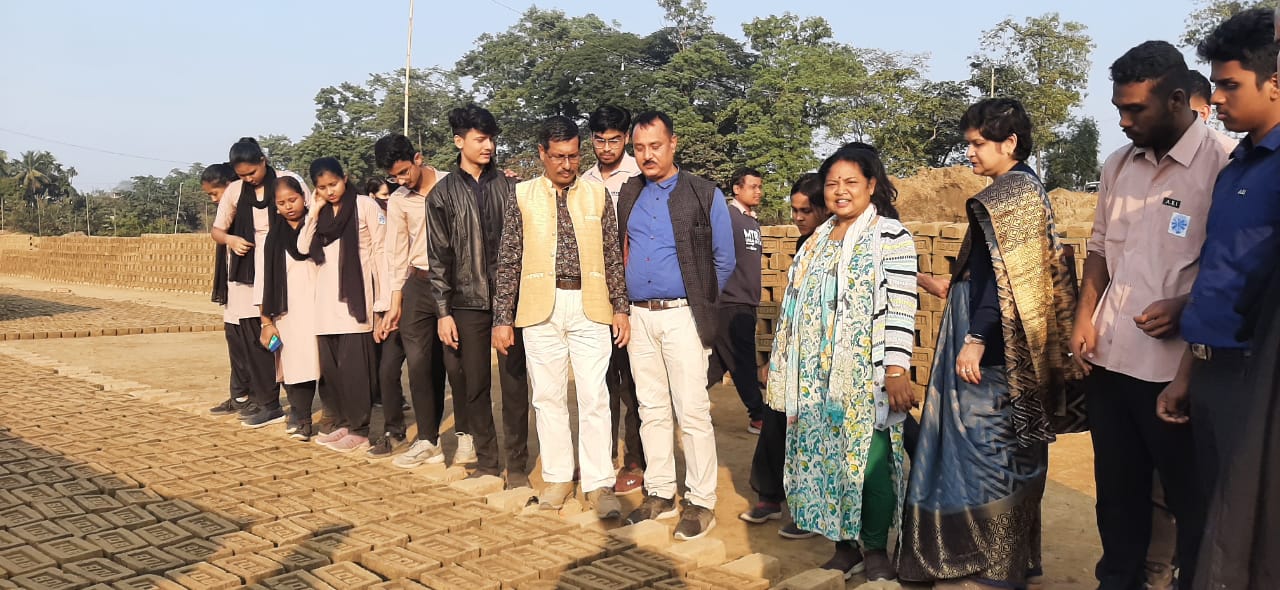 |
“Swachha Bharat Abhiyan” Organized by Civil Engg. Deptt. on 29/10/2022.
“Parents-Teacher Meet” Organized by Civil Engg. Deptt. on 11/06/2022.
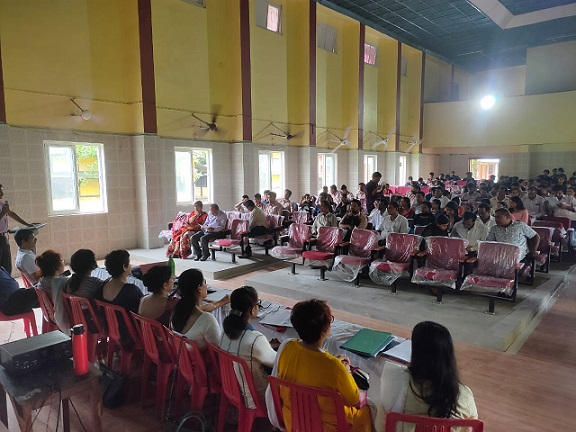 | 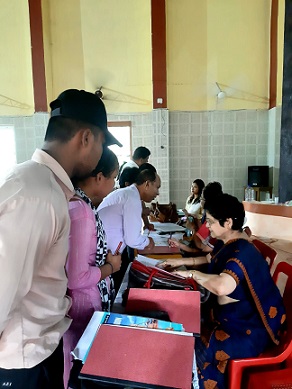 |
Tree Plantation drive on the occasion of World Environment Day Organized by Civil Engg. Deptt. on 05/06/2022.
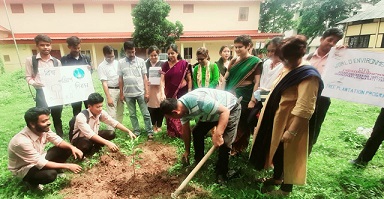 | 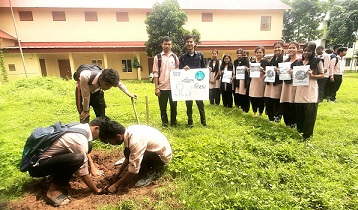 |
Mentorship Meeting with the students of Civil Engg. Deptt. organized on 03/06/2022.
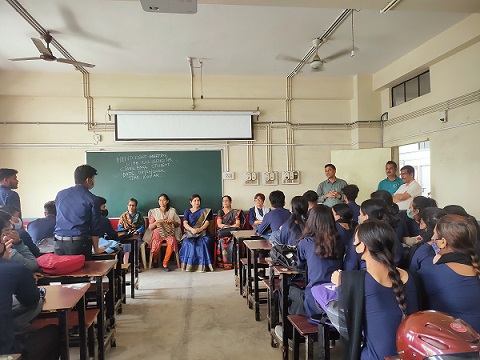
“Entrepreneurship Awareness Programme” Organized by Civil Engg. Deptt. on 12/05/2022.






























